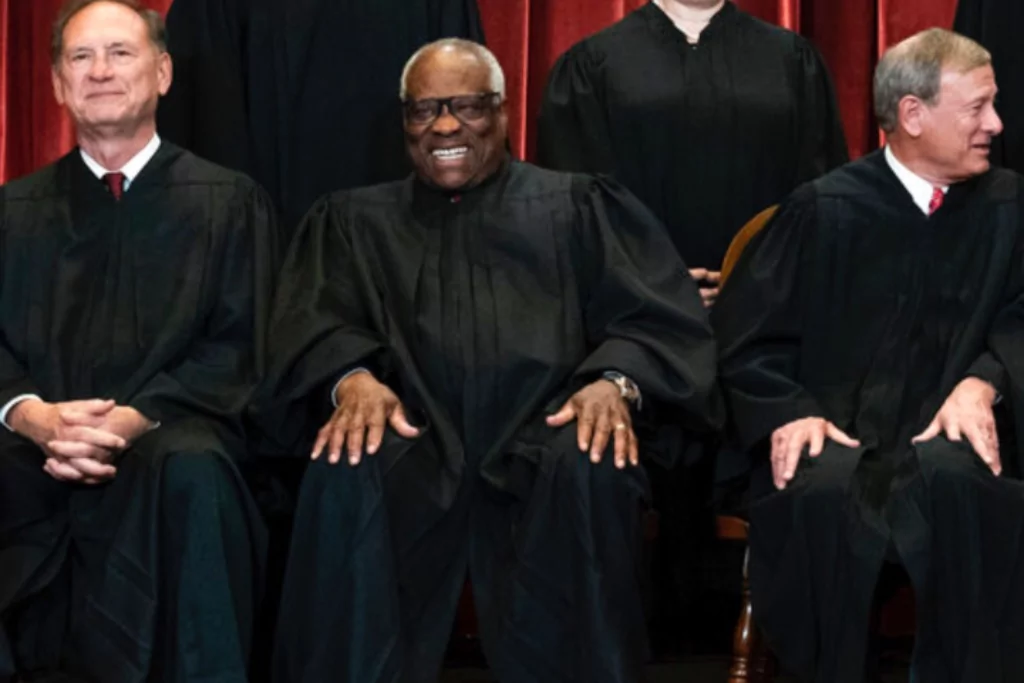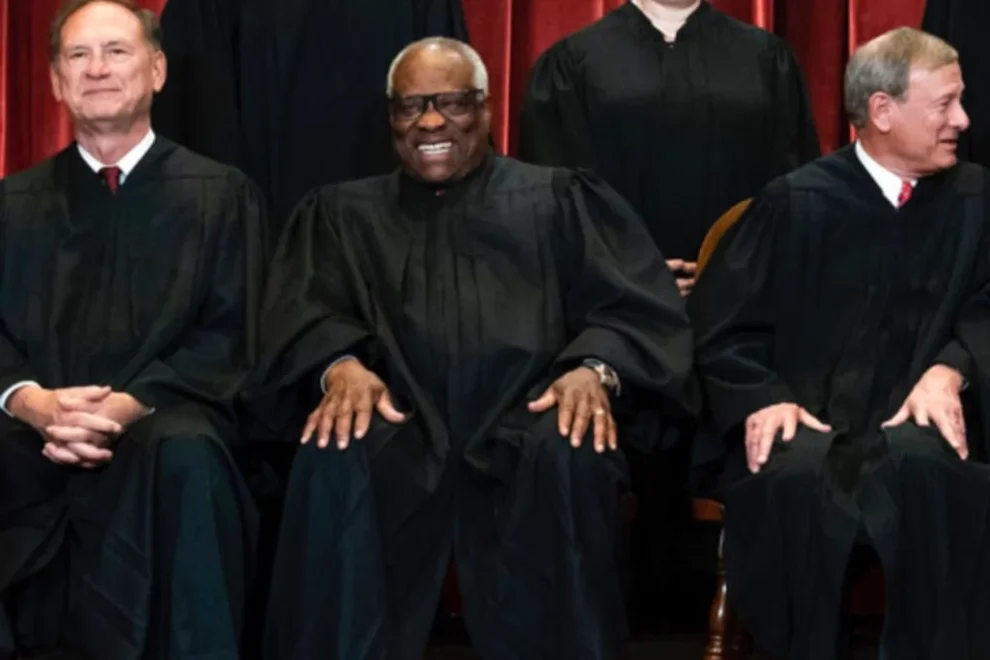The Harris-Walz campaign at last posted policy positions on its website Monday, proposing a plan that would possibly result in the forced retirement of Supreme Court Justice Clarence Thomas by next year, along with two more Republican-appointed justices before the next decade.
Released a day before Vice President Kamala Harris heads to the debate stage against former President Donald Trump, the policy outline includes so-called commonsense Supreme Court reforms such as “imposing term limits.” It’s unclear how long Harris believes a justice should remain on the high court before he or she would be automatically forced into retirement, and her campaign dedicated more attention and detail on its website toward attacking Trump for the three justices he nominated during his single term in office.

“Donald Trump handpicked members of the United States Supreme Court to take away reproductive freedom — and now he brags about it,” the campaign wrote, according to a section on her website under “Restore And Protect Reproductive Freedoms.”
However, Harris’s campaign has reportedly indicated her position is “aligned” with a more detailed plan to replace at least three Republican-appointed justices by 2029, according to a statement from her ally Sen. Sheldon Whitehouse (D-RI) to the Dispatch last month.
2024 PRESIDENTIAL DEBATE LIVE UPDATES: TRUMP AND HARRIS FACE OFF IN ABC SHOWDOWN
“They have not gone so far as to say, ‘We endorse your bill.’ They have said that your bills are precisely aligned with what we are talking about,” Whitehouse said of his Senate Bill 3096, also known as the Supreme Court Biennial Appointments and Term Limits Act, which would impose 18-year term limits for justices despite sitting lawmakers in Congress facing no such limits.
The legislation calls for presidents to nominate and the Senate to confirm a new justice to the Supreme Court every two years. Only the nine most recently appointed justices would sit for oral arguments, while the remaining justices would effectively maintain a semiretired status and participate in appellate cases as needed, such as in the event of a recusal.
If Whitehouse’s bill were enacted under Harris, she could replace Thomas in 2025, followed by Chief Justice John Roberts in 2027. If she won a second term, Justice Samuel Alito, author of the 2022 decision that overturned Roe v. Wade, would be the next in line for forced retirement.
While passing such a bill would normally require a two-thirds vote, Whitehouse indicated Democrats could pass such legislation by a simple majority should they reclaim control of both Congress and the White House after the election.
Legal experts have cautioned that Supreme Court term limits legislation would face an uphill battle toward passage because Article 3 of the Constitution suggests judges and justices shall retain their offices during “good behavior,” meaning they cannot be involuntarily replaced unless they are impeached in the House and convicted by trial in the Senate by a two-thirds vote.
Whitehouse’s bill is the most serious and comprehensive effort by Democrats so far to impose Supreme Court reforms via legislation, and it’s unclear what other legislation or proposals addressing the Supreme Court Harris was referring to on her campaign website. Harris also said on the website that she would support imposing a binding ethics code on the justices.
CLICK HERE TO READ MORE FROM THE WASHINGTON EXAMINER
As part of the rollout of policy items for the Harris-Walz campaign, the Democratic nominee also backed other controversial measures, such as the John Lewis Voting Rights Advancement Act and the Freedom to Vote Act — two bills that Republicans have said could actually result in less-secure elections and censorship.
The Washington Examiner contacted two representatives for the Harris-Walz campaign and the office of Whitehouse but did not receive responses.
























